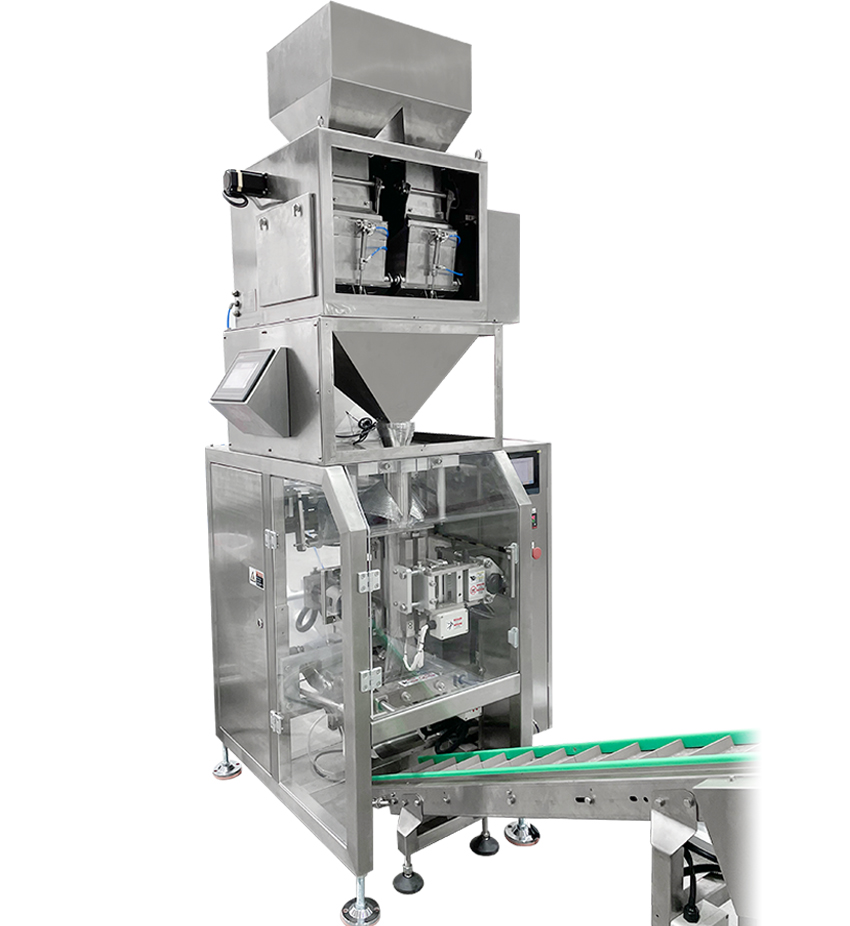The Ultimate Guide to Linear Feeder Packing Machines, Packing Scales, and Net Weighers
In today's fast-paced manufacturing and packaging industry, efficiency and precision are essential. Companies dealing with food, pharmaceuticals, and other consumer goods need reliable machines to streamline the packaging process. Among the most crucial equipment in this field are linear feeder packing machines, packing scales, net weighers, and packing fillers. These machines ensure accurate product measurements, reduce waste, and enhance productivity.
In this article, we’ll dive deep into linear feeder packing machines, their role in packaging, how packing scales and net weighers work, and why these machines are essential for any packaging facility.
What is a Linear Feeder Packing Machine?
A linear feeder packing machine is an automated device designed to transport, measure, and dispense materials into packaging containers. It is widely used in industries that require precision in filling and packaging, such as food processing, chemicals, pharmaceuticals, and agriculture.
How Does a Linear Feeder Packing Machine Work?
The machine operates by using vibratory feeders that guide and regulate the flow of materials from a hopper to a weighing system. Once the correct weight is achieved, the product is discharged into bags, bottles, or other containers.
Key Components of a Linear Feeder Packing Machine
- Hopper – Holds the raw material before feeding.
- Vibratory Feeder – Moves the product towards the weighing system in a controlled manner.
- Weighing System – Ensures accurate measurements before filling.
- Control Panel – Allows operators to set weight limits, speed, and other parameters.
- Discharge Mechanism – Releases the weighed material into the packaging container.
Packing Scale: The Heart of the Weighing Process
A packing scale is a vital component in packaging lines that ensures each product is weighed accurately before being packed. These machines are often integrated into linear feeder machines to automate and improve efficiency.
Types of Packing Scales
- Manual Packing Scale – Requires an operator to place and remove packaging materials.
- Semi-Automatic Packing Scale – Reduces manual effort by automating part of the process.
- Fully Automatic Packing Scale – Provides complete automation from weighing to packaging.
Why is a Packing Scale Important?
- Accuracy: Reduces product giveaway and ensures customers receive the correct amount.
- Efficiency: Speeds up the packaging process, allowing manufacturers to meet high demand.
- Cost Savings: Minimizes material wastage, leading to higher profits.
Understanding the Net Weigher
A net weigher is a specialized weighing device used to measure the exact weight of a product before it is dispensed into a package. Unlike gross weighers, which weigh the container and product together, net weighers weigh only the product.
Benefits of Using a Net Weigher
- Higher Precision – Ensures exact weight measurements.
- Faster Operation – Speeds up the filling process.
- Reduced Waste – Avoids overfilling or underfilling.
Packing Filler: Essential for Efficient Packaging
A packing filler is a machine designed to dispense the right amount of product into a container. It works alongside linear feeder machines and packing scales to ensure smooth operation.
Types of Packing Fillers
- Gravity Fillers – Use gravity to fill containers, suitable for free-flowing products.
- Auger Fillers – Ideal for powders and fine particles.
- Piston Fillers – Best for liquid and semi-liquid products.
- Vacuum Fillers – Used for delicate products requiring precise handling.
Why Invest in a High-Quality Linear Feeder Packing Machine?
- Improved Accuracy: Eliminates human error in weighing and filling.
- Higher Productivity: Increases packaging speed while maintaining consistency.
- Cost-Effective: Reduces waste and maximizes resource utilization.
- Versatility: Can handle a wide range of products, from powders to granules and liquids.
Final Thoughts
Investing in a linear feeder packing machine, packing scale, net weigher, and packing filler is crucial for businesses looking to enhance efficiency and accuracy in packaging. These machines work together to provide seamless, automated, and precise packaging solutions for various industries.
If you're in the market for packaging equipment, ensure you choose high-quality, durable, and reliable machines that match your production needs. With the right packaging technology, you can increase productivity, reduce waste, and ensure customer satisfaction.
FAQs
1. What industries use linear feeder packing machines?
Industries like food processing, pharmaceuticals, agriculture, and chemicals use these machines for accurate and efficient packaging.
2. How does a net weigher differ from a gross weigher?
A net weigher measures only the product's weight, while a gross weigher includes the container’s weight.
3. Can packing scales handle different product types?
Yes, modern packing scales can be adjusted for various product sizes and weights, ensuring flexibility in packaging.
4. What is the best packing filler for powders?
Auger fillers are ideal for powders as they ensure precise filling with minimal dust generation.
5. Are fully automated packaging machines worth the investment?
Yes, they significantly improve efficiency, reduce labor costs, and ensure product consistency, making them a valuable asset for businesses.



Comments
Post a Comment